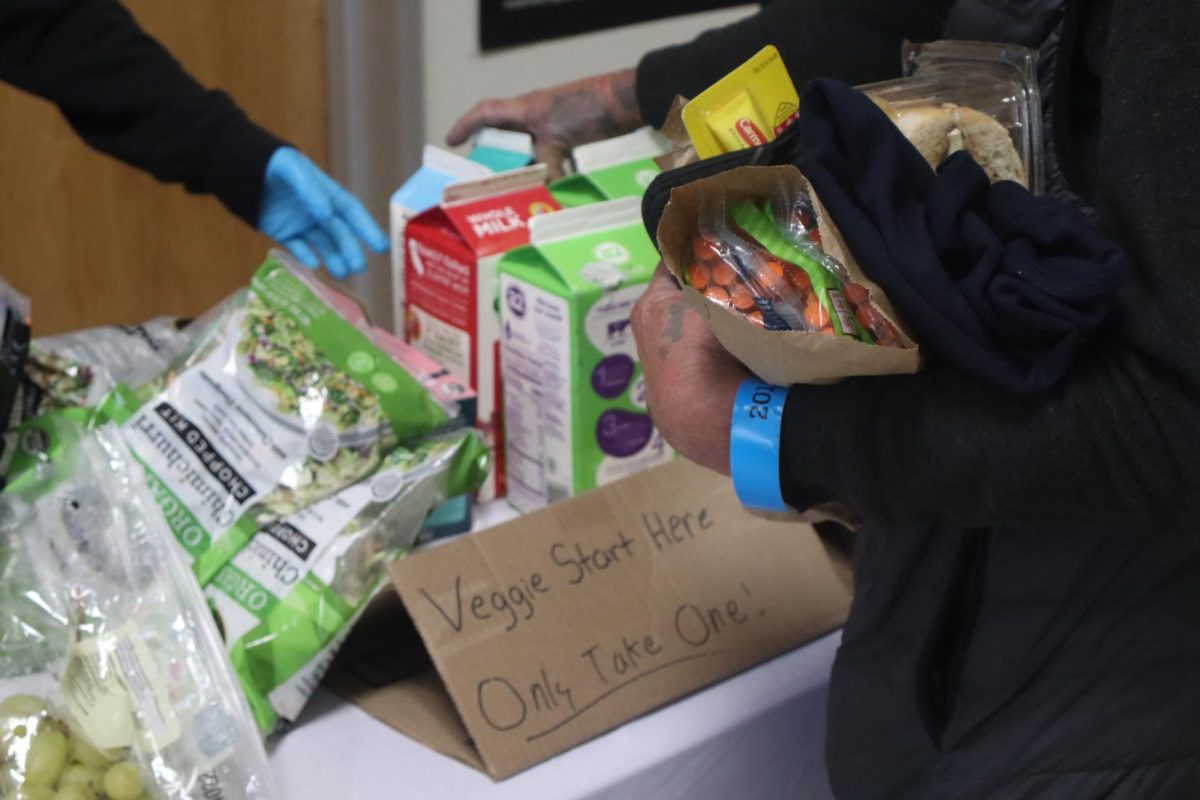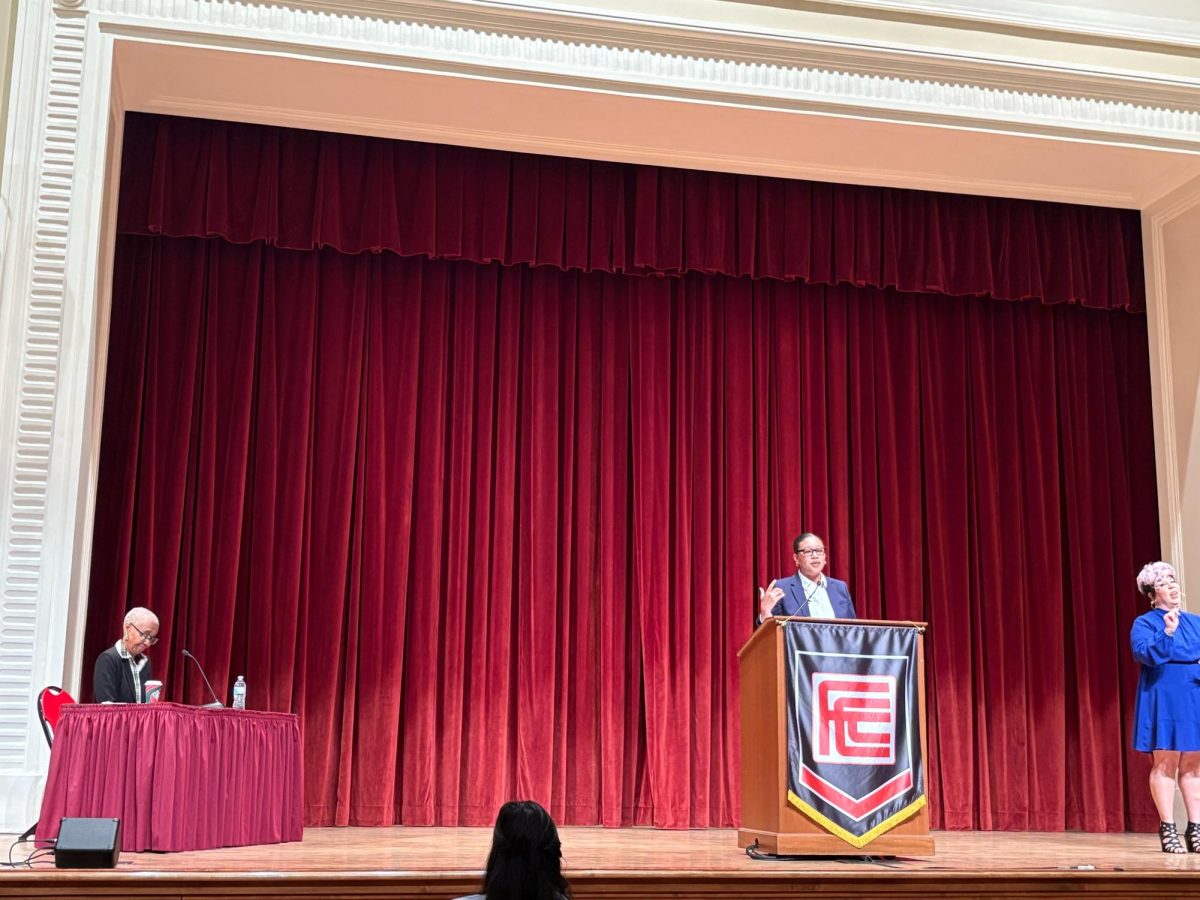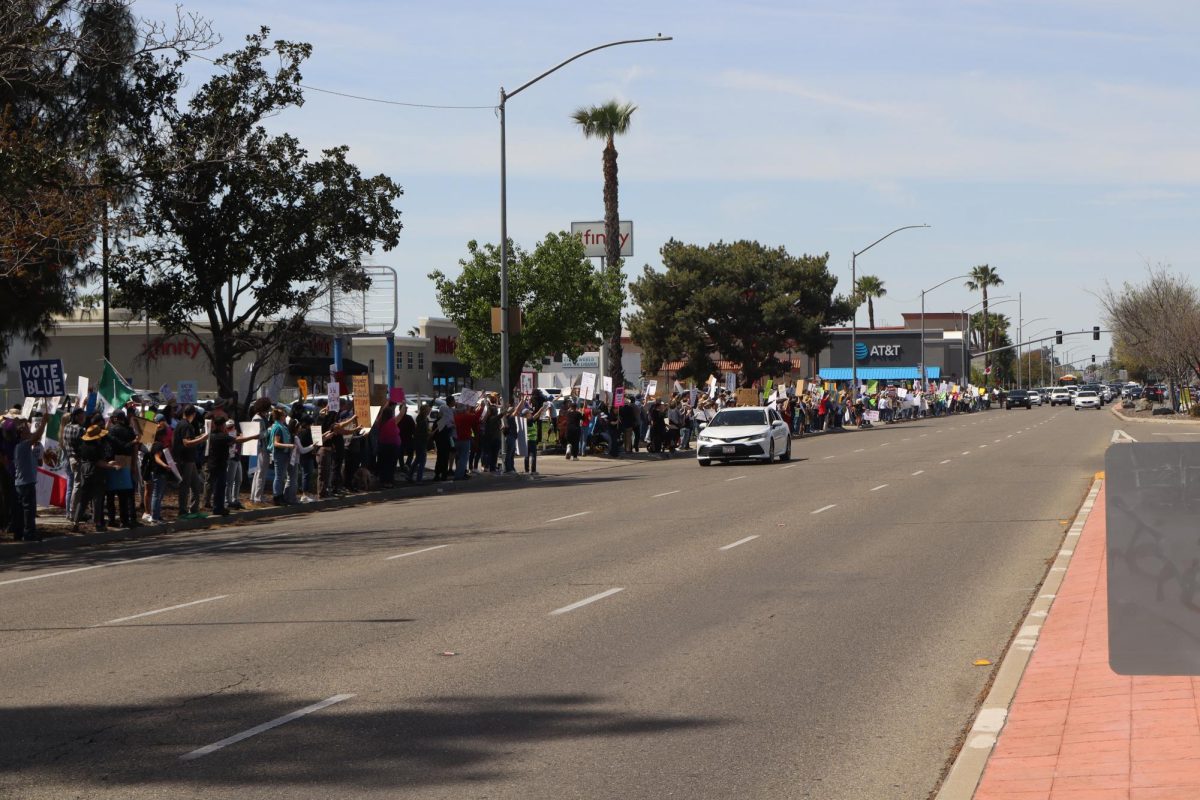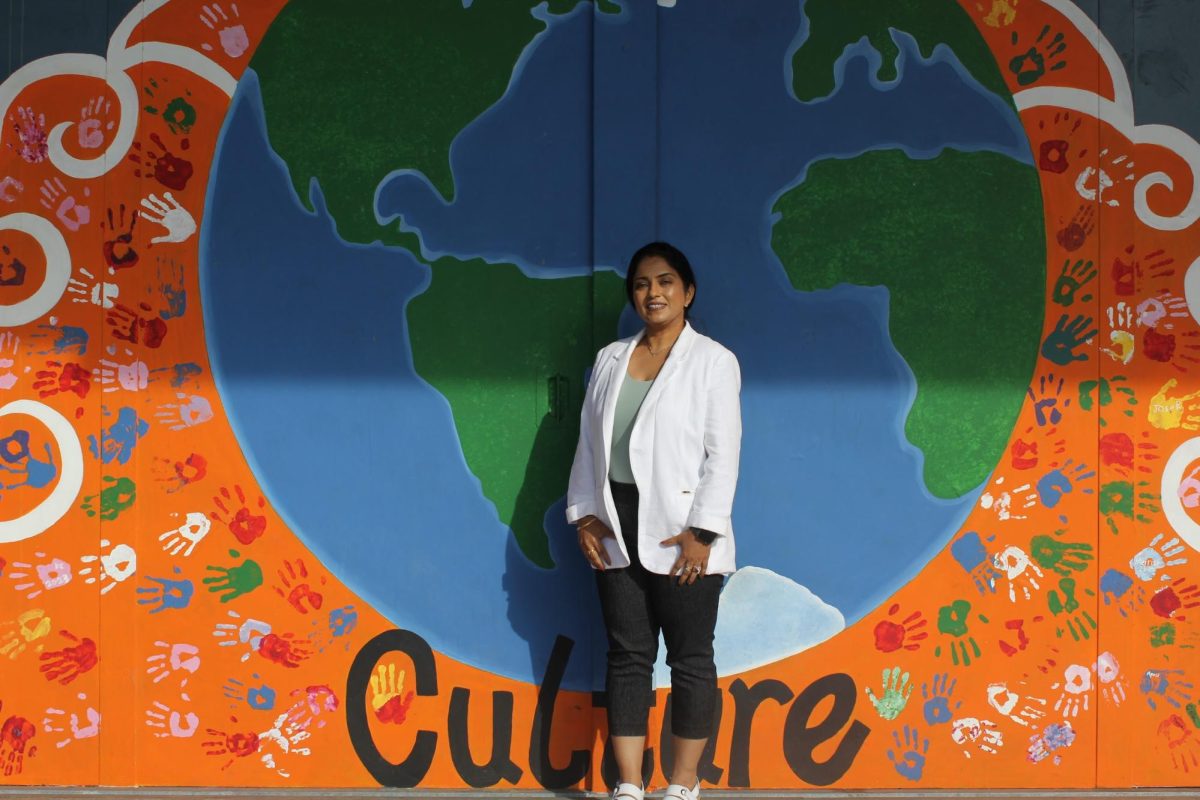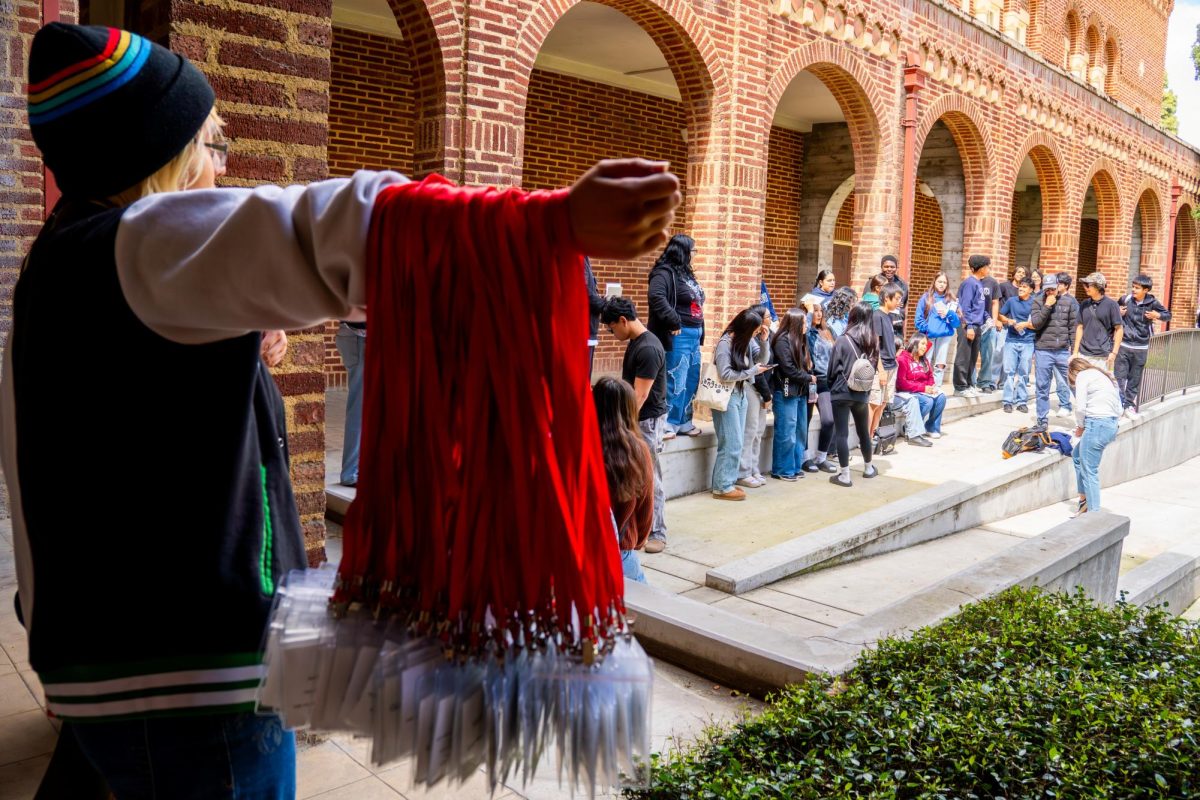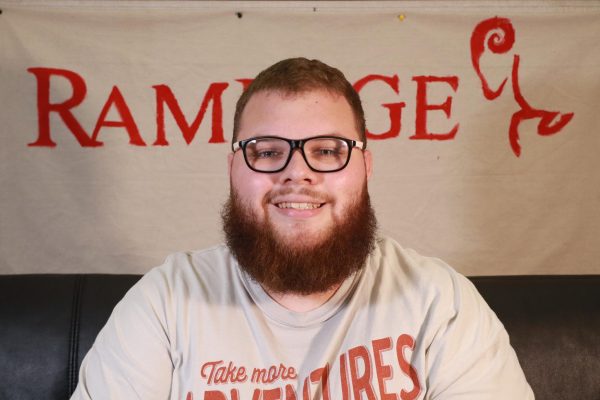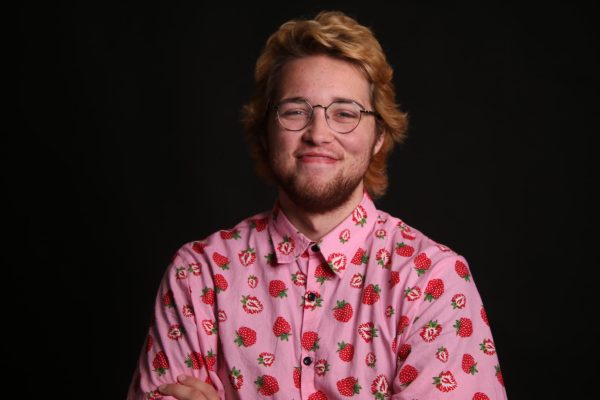On Saturdays in Downtown Fresno, Dr. Marc Lasher, the Medical Director at the San Joaquin Valley Free Medical Clinic and Needle Exchange, sees patients with substance use disorder. He knows some by their first name and greets them when they come into the Department of Public Health building.
When people walk in, the first place patients go is a station set up for Fentanyl test strips and Narcan. Then they exchange their needles for new ones before being able to see a doctor, get transportation, get signed up for Medicaid and other social services.
Non-medical resources are also available like clothes and food donations from Food Not Bombs, a group dedicated to ending hunger.
Along with those services, key medical treatments are offered there like: relieving abscesses, writing prescriptions, and setting up appointments with doctors and dentist and mental health professionals.
A female patient came in after almost rupturing her vein after injecting crystal meth. Lasher and two pre-med students assisted her by taking her vitals and writing her a prescription to help her for an infection, from the injury.
Before leaving, Lasher asked her if she would be interested in getting off crystal meth and even though she said no, the patient shook his hand and thanked him for his assistance.
“That’s trust,” Lasher said. “We get to build a rapport, even if they just come in for needles, they know we care; we’re not going to judge.”
History of the program
The exchange is based in Downtown Fresno, at 1221 Fulton St., now that it’s under the Public Health Department but before, it was stationed in a cul-de-sac outside of Roeding Park for over 30 years. The program built off of the home deliveries of Dallas Blanchard where he would deliver needles to people’s homes in Fresno.
Lasher joined when he was still in medical school after hearing about Blanchard’s work and after visiting a needle exchange program in East Los Angles.
“I was quite impressed at what I saw them doing on the street, under the street lamps, police cars going by, looking out their window and checking that everything was going along fine,” Lasher said. “ It was a really good scene for people who needed assistance.”
Eventually the home deliveries became too much so they switched to meeting people at Roeding Park for exchanges and eventually medical treatment. They went through multiple pseudo-clinics like volunteer cars, a van, a school bus, and at one point they rented a U-Haul every week after the bus died.
“The Harm Reduction Program, for a long time, was offering service down in a cul-de-sac near Roeding Park, and it was offering needle exchange services, Narcan distribution, fentanyl test strips, medical services for abscesses,” David Luchini, the Director of Public Health in Fresno County, said. “We thought it was a good opportunity as a pilot program to bring [the needle exchange] inside here [the Public Health Department building] and offer additional services.”
The County Board of Supervisors decided to move the program downtown after a 3-2 vote on Sept. 5, 2023 to avoid public safety concerns and give the program a place where they could do their work safely, while on a zero-dollar lease starting in January.
The program and who it serves
The San Joaquin Valley Free Medical Clinic and Needle Exchange consists of staff and volunteer physicians, pre-med, pre-nursing, pre-pharm students, family practice residents, social work faculty, students, and community volunteers.
“This gives them hands-on [experience] with patients and two hands on dealing with their medical situations,” Lasher said.
Their mission is to “enhance the safety, health, and well-being of individuals who use injection drugs by offering free healthcare, substance use disorder treatment, and social services,” according to the San Joaquin Valley Free Medical Clinic and Needle Exchange website.
While the needle exchange program is highlighted, both when someone walks in and on their website, the main goal is public safety for the county and stopping the spread of illnesses that can be shared via needles.
“The first priority, when you’re talking about the needle exchange, [is] bringing the clients in to be offered these other services and also prevent infectious disease,” Luchini said. “This population usually has a high rate of Hepatitis C infection… that’s very expensive to treat and can lead to chronic liver issues, cirrhosis to the liver and future hospitalization.”
Anywhere from 150-200 patients use the needle exchange each week, another 15 receive free medical care, about six each week enter drug treatment, and there are around 15 overdose reversals reported each week with the Narcan from the needle exchange according to Lasher.
The biggest population of patients are the unhoused, making up around 40-60% of the people served every Saturday, according to Joe Prado, the Assistant Director of Public Health in Fresno County
“We’re now starting to capture data at another level than what was done previously, and we’re just kind of finding out what the needs of this population are,” Prado said.
Backlash
The Center for Disease Control and Prevention has said that programs like the San Joaquin Valley Free Medical Clinic and Needle Exchange are safe, effective, cost-saving, and will not expand illegal drug use or crime.
“This is the first form of treatment. It’s not enabling,” Lasher said.
Still, when the clinic opened downtown, there was a lot of pushback from Fresno City Council Members Miguel Arias and, now County Supervisor-elect, Garry Bredefeld along with Mayor Jerry Dyer who had concerns about its “morality” and impact on the downtown community.
“It’s wrong because they did not consider the impact that this would have on our businesses,” Dyer said in a press conference after the 3-2 vote. “It was wrong because it didn’t understand the impact it would have on the school district.”
In the same press conference, Arias had said that a restaurant had pulled out of relocating to downtown because of the needle exchange.
“We heard that concern, that he [Dyer] was concerned about our people being down here would be a detriment,” Lasher said. “Well, it’s not. This is mainstream medicine.”
What Lasher and the other doctors did in response was change the hours from the afternoon to morning hours with the exchange starting at 9 a.m. and ending at around 11 a.m. Also, the bus passes they hand out allow for patients to easily move out of the area after receiving their treatments.
Changing healthcare
Changing the perspective on how a needle exchange is talked about is key for healthcare and patients in general. When Lasher worked in emergency rooms, doctors would refer to the people who are seen at needle exchanges as GOMERs – Get Out of My ER.
“They have a life to live, a family to support and all of that,” Lasher said. “To put a face, a life to this concept of someone being an addict.”
Lasher shared a story of a woman who was a student and her mother and their story of addiction and how this type of healthcare didn’t encourage the addiction but helped her get clean.
“One gal who spoke at a board of supervisors meeting…she was talking about how she was a student at Fresno State and that she ended up with a heroin use problem, and she says that she was able to get through that whole experience without any long term sequela, like having HIV or hepatitis C, or any long term problems, medical problems because she was able to access clean needles,” Lasher said. “She happened to graduate from Fresno State, and got accepted into the graduate school.”
For more information, visit the San Joaquin Valley Free Medical Clinic and Needle Exchange’s website.

